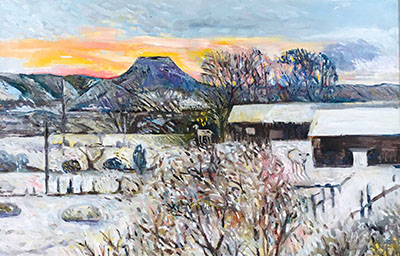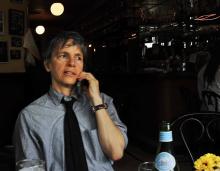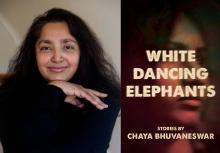An intelligent and exciting debut short story collection, White Dancing Elephants (Dzanc Books, Oct 2018) focuses on the varied experiences of women of color. Bhuvaneswar deftly explores the complexities of intersectional feminism through tales about queer Indian women, queer biracial women, diverse immigrants, narrators with physical and mental illnesses, women of color coping with the trauma of miscarriage and rape, etc. Chaya's prose is simultaneously crisp, clear, and layered with storytelling references.


